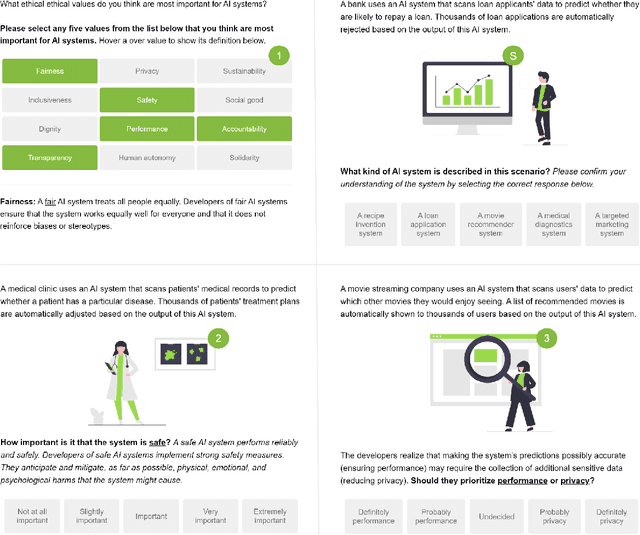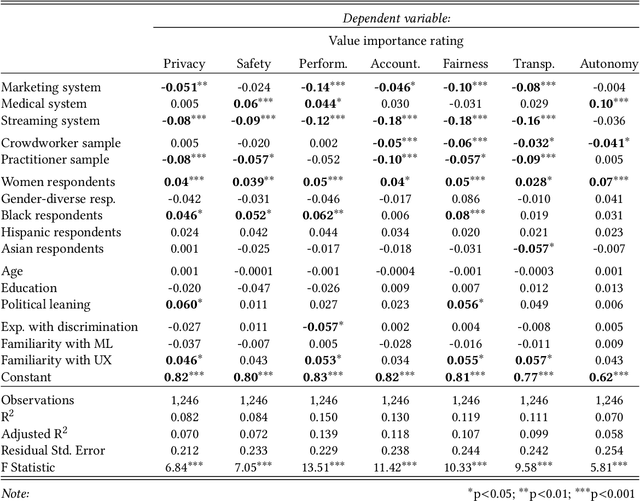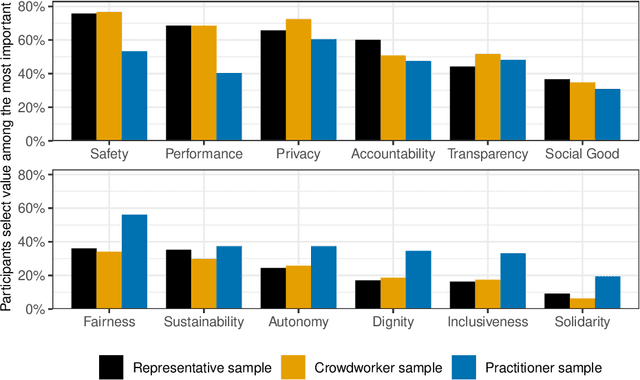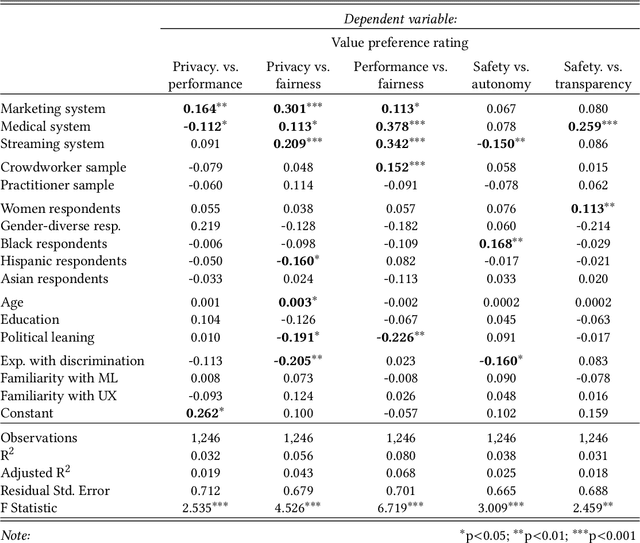How Different Groups Prioritize Ethical Values for Responsible AI
Paper and Code
May 16, 2022



Private companies, public sector organizations, and academic groups have outlined ethical values they consider important for responsible artificial intelligence technologies. While their recommendations converge on a set of central values, little is known about the values a more representative public would find important for the AI technologies they interact with and might be affected by. We conducted a survey examining how individuals perceive and prioritize responsible AI values across three groups: a representative sample of the US population (N=743), a sample of crowdworkers (N=755), and a sample of AI practitioners (N=175). Our results empirically confirm a common concern: AI practitioners' value priorities differ from those of the general public. Compared to the US-representative sample, AI practitioners appear to consider responsible AI values as less important and emphasize a different set of values. In contrast, self-identified women and black respondents found responsible AI values more important than other groups. Surprisingly, more liberal-leaning participants, rather than participants reporting experiences with discrimination, were more likely to prioritize fairness than other groups. Our findings highlight the importance of paying attention to who gets to define responsible AI.
 Add to Chrome
Add to Chrome Add to Firefox
Add to Firefox Add to Edge
Add to Edge